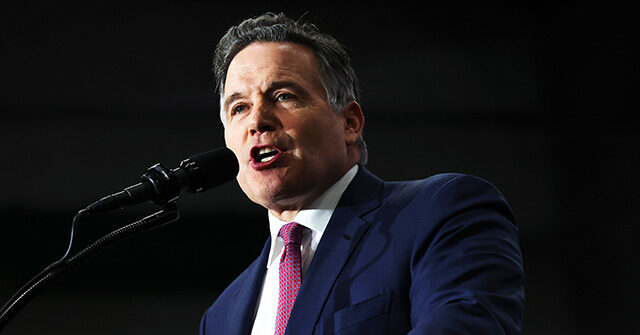In a recent debate, Pennsylvania Republican Senate candidate Dave McCormick criticized incumbent Senator Bob Casey for his alignment with the Biden administration’s spending policies, which McCormick argues have contributed to soaring inflation levels not seen in 40 years. McCormick attributed the current economic crisis directly to the administration’s significant expenditure packages, which Casey supported. He specifically pointed to the $5 trillion spent under the Biden-Harris administration and referenced statements made by Larry Summers, a prominent economist and former Treasury Secretary under Barack Obama, who warned that such extensive spending would inevitably lead to higher prices.
McCormick highlighted specific legislative measures backed by Casey that he believes have fueled inflation, including the $1.9 trillion American Rescue Plan, the $1.2 trillion Bipartisan Infrastructure Bill, and the $700 billion Inflation Reduction Act, which notably allocates $369 billion for green energy initiatives. He argued that these bills have not only contributed to escalated prices but also intensified the leftist agenda against fossil fuels, straining the budgets of everyday Americans. Citing statistics, he revealed that essentials such as groceries and rent have surged by 22%, electricity costs have risen by 35%, and fuel prices have increased by nearly 50%, all under policies endorsed by Casey and the current administration.
In a rebuttal, Senator Casey claimed that corporate profits are primarily responsible for rising inflation. McCormick, however, refuted this assertion by stating that while instances of price gouging may exist, these are not the root cause of the inflation crisis. He emphasized that the detrimental economic policies resulting from Casey’s near-total support of excessive spending measures are primarily to blame. McCormick called out Casey for not accepting responsibility for the impacts of those votes on working families, who have been adversely affected by the inflationary crisis.
Furthermore, McCormick warned that additional spending proposed by Vice President Kamala Harris, estimated at $2 trillion, along with plans for “Venezuelan-like price controls,” would exacerbate the current situation. He compared such controls to failed economic strategies implemented in other regions and argued that they threaten to dismantle the U.S. economy. By presenting this as a dire warning against further leftist policies, McCormick framed his narrative around the notion that the Democratic strategies lack an understanding of fundamental economic principles.
McCormick concluded by advocating for a change in leadership that prioritizes fiscal responsibility and sound economic policies. He portrayed himself as a representative of working families who have been struggling under the weight of inflation. Aligning himself against what he described as the Democrats’ reckless financial tactics, he made it clear that he believes a shift away from such policies is necessary to restore economic stability.
Ultimately, the debate underscored a stark contrast between the two candidates’ economic philosophies, with McCormick positioning himself firmly against the spending tendencies of the Biden administration and advocating for a more disciplined approach to governance that he believes will benefit Pennsylvania’s working-class individuals. As the campaign progresses, these economic issues are likely to remain central in the conversation, shaping voter perceptions and ultimately impacting election outcomes.

